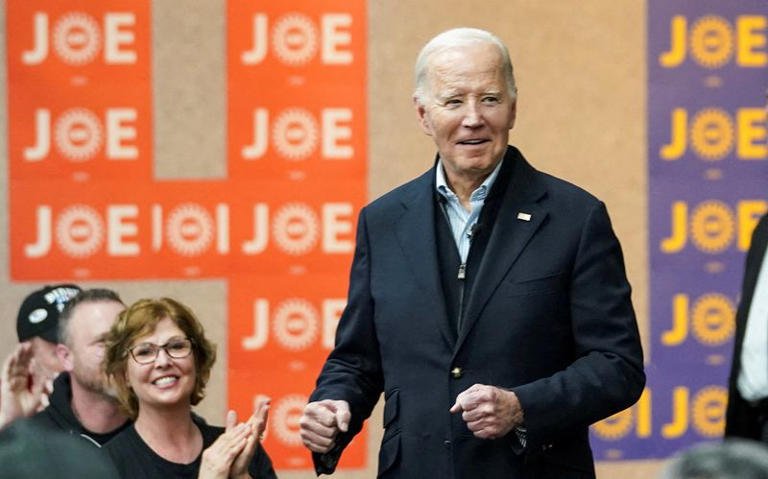President Joe Biden’s stance on Israel’s conflict with Hamas in Gaza faces a critical test in Michigan on Tuesday, where a significant Arab American population resides and Democratic voters are encouraged to select “uncommitted” on their primary ballots.
Michigan, a pivotal battleground state expected to play a crucial role in the upcoming November 5 election, will witness separate nominating contests for both Democratic and Republican candidates, with Biden and former President Donald Trump seeking strong showings.

Amidst mounting criticism from within the large Arab American community and progressive Democrats, Biden’s unwavering support for Israel’s offensive in Gaza has sparked outrage. However, late on Monday, Biden announced that Israel had agreed to cease military operations in Gaza for the Muslim holy month of Ramadan, starting March 10. Concurrently, Hamas was considering a truce proposal involving a prisoner-hostage exchange.
The impact of these developments on Michigan’s primary remains uncertain.
Leading up to the primary, Rashida Tlaib, a Democratic congresswoman of Palestinian descent from Michigan, urged voters not to support Biden and instead opt for “uncommitted.”
The “uncommitted” campaign, endorsed by Arab American leaders, gained traction, particularly in Dearborn, a city with a substantial Middle Eastern and North African population, according to the U.S. Census Bureau.

However, Michigan Governor Gretchen Whitmer, a Democrat, cautioned against the “uncommitted” campaign, emphasizing the potential repercussions of not backing Biden, which could potentially sway the swing state towards Trump in November.
Waleed Shahid, a senior Democratic strategist, emphasized the significance of the “uncommitted” vote, suggesting it reflects reservations regarding Biden’s stance on Israel’s actions in Gaza.
Despite the criticism, a senior Biden campaign official assured that the concerns are being taken seriously, with Biden acknowledging the demonstrators’ grievances. However, the official maintained confidence in Michigan’s diverse electorate and expressed optimism about the overall narrative favoring Biden.
In a notable show of support, Biden secured backing from union autoworkers in Michigan on February 1, a crucial demographic for his reelection bid, given Michigan’s status as a hub for auto production.
The electoral significance of Michigan cannot be overstated, given Biden’s narrow victory over Trump in 2020 and Trump’s slim margin of victory in 2016. Both candidates are keen on solidifying support in the state ahead of the November election.

The ongoing conflict between Israel and Hamas, marked by violence and casualties, underscores the complexities of the geopolitical landscape and the challenges faced by policymakers like Biden, who seek to balance strategic alliances with humanitarian concerns.
On the Republican front, Trump is expected to secure a resounding victory in Michigan’s primary, bolstering his position as the party’s frontrunner despite challenges from within the GOP ranks.
As the primary unfolds, all eyes are on Michigan, where political dynamics and voter sentiments could shape the trajectory of the upcoming election and influence the course of U.S. foreign policy in the Middle East.

